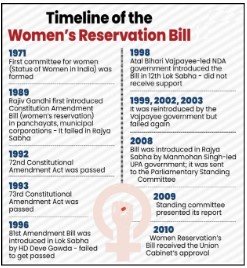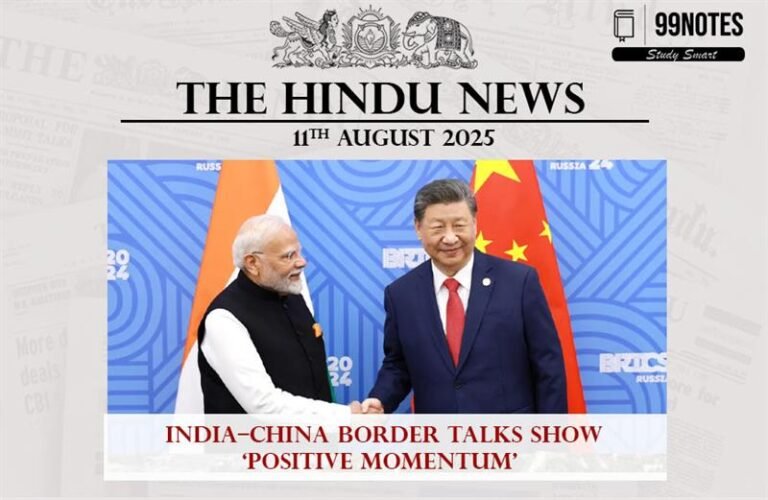15 April 2025 : The Hindu Editorial Analysis
1. History as battlefield — the perils of reversing the past
(Source – The Hindu, International Edition – Page No. – 8)
|
Topic: GS1 – History |
|
Context |
|
Textbook Changes and Public Sentiment
- This change came alongside growing public anger demanding renaming or destruction of Mughal-era tombs.
- Viral campaigns called for vandalism of historical monuments, based on a black-and-white view of India’s past.
- Supporters claimed these moves corrected biased portrayals, but such selective rewriting increased societal divisions.
Why History Needs Nuance?
- History should be studied with careful thought, considering causes, consequences, and context.
- When it is used as a political weapon to bring back a perceived lost glory, it becomes divisive.
- Trying to undo the past instead of understanding it leads to more conflict and hinders progress.
- Remembering historical wrongs is important, but they should not be used to reclaim past status or borders.
Revisionism vs. Reinterpretation
- It is important to separate political revisionism from genuine academic reinterpretation.
- Reinterpretation is based on new evidence or perspectives and helps deepen our understanding.
- Political revisionism twists history to support current agendas, often linked to identity and nationalism.
- Historical examples like the religious wars in Europe and the wars over sacred sites show how attempts to reverse history caused deep divisions and violence.
Consequences in History of Weaponised Past
- The wars in Europe during the 16th and 17th centuries showed how religious and political groups tried to restore their dominance based on past grievances.
- These wars caused millions of deaths, destroyed economies, and led to prolonged suffering.
- The attempt to justify present actions by referring to historical events led to more hatred and conflict.
Modern-Day Examples of Revisionism
- The 20th century saw destructive revisionism, where manipulated history was used to justify violence and conquest.
- In one case, a major European power tried to regain lost glory and overturn peace treaties, resulting in a global war and genocide.
- The Partition of India in 1947 was another example, where selective historical memories fueled communal violence and mass displacement.
- Today, regions like the Middle East and Eastern Europe continue to suffer due to attempts to reverse history and reclaim disputed lands.
History Must Be a Teacher, Not a Weapon
- History should guide us to avoid past mistakes, not be used as a model to recreate them.
-
- Nations must look forward instead of trying to recreate a glorified past.
- Selectively remembering the past to justify revenge leads to more violence.
- True learning from history requires humility, mutual respect, and a forward-looking approach.
|
Practice Question: Discuss the implications of politicised historical revisionism on national identity and social harmony. How can a balanced approach to interpreting history contribute to a more inclusive society? (250 Words /15 marks) |
2. Feminism for polarised times
(Source – The Hindu, International Edition – Page No. – 9)
|
Topic: GS2 – Social Justice |
|
Context |
|
Women’s Reservation and Mainstreaming Gender Equity
- The Women’s Reservation Bill, 2023 brought gender equity into the core of political discussions.
- No institution can now ignore the demand for women’s representation.
- However, this mainstreaming has made it harder to engage critically, as the discourse can feel rigid or exclusionary.
Structural vs. Interpersonal Terrain
- Discussions around women’s issues operate on two levels: structural inequalities and interpersonal relationships.
- The structural level involves social systems that keep women at the margins.
- The personal level includes everyday relationships, often shaped by care and mutual dependence.
- Using only the structural lens can misinterpret personal relationships as purely oppressive, ignoring love, negotiation, and complexity.
Human Complexity in Gender Roles
- Many men silently sacrifice personal comfort to support families.
- Relationships often show a mix of traditional expectations and mutual support.
- These realities are not straightforward expressions of patriarchy but reflect a complex balance of emotions, duties, and shared responsibilities.
Social Change at Multiple Levels
- While problematic behaviours must be challenged, not all require the label of misogyny.
- Change comes through public policy and daily life negotiations — such as altered family roles or unexpected support from relatives.
- Marginalised women’s success stories often involve male allies, showing that progress includes nuanced cooperation.
Addressing Structural Violence
-
- In cases where women are forcibly denied agency — such as honour killings or proxy politics — structural reforms and strong legal enforcement are essential.
- True empowerment involves multiple factors: economic independence, legal safeguards, education, and social support systems.
Misrepresentation of Inequities
- A financially independent urban woman’s challenges differ greatly from a rural woman’s vulnerability to violence.
- Feminist discourse often merges different struggles into one narrative, which can mask real inequities and alienate those it seeks to engage.
Need for Compassionate Feminism
- A more empathetic feminist approach may reduce backlash and encourage solidarity.
- Recognising men’s hardships, especially those at the margins, can build mutual understanding.
- A balanced feminism must handle contradictions, distinguish between structures and sentiments, and promote change without conflict as the first step.
|
Practice Question: Discuss the need for a context-sensitive and compassionate feminist approach in India, especially in light of the Women’s Reservation Bill, 2023. (150 Words /10 marks) |
Read more – 14 April 2025 : The Hindu Editorial Analysis

